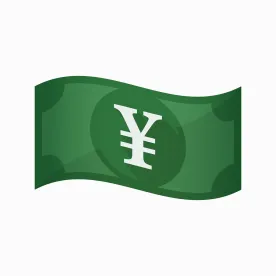In 1998, China announced its “go out” or “go global” policy aimed at encouraging its enterprises to invest overseas. In 2013 this policy was reinforced with China’s introduction of its One Belt, One Road (OBOR) or “Belt & Road” initiative, which seeks to enhance development and trade routes in the region, connecting China with other countries along the ancient Silk road and a new Maritime Silk Road. Significant international anxiety has been expressed about China’s global ambitions generally, and as it pertains to Africa in particular, with some calling China’s OBOR initiative “neo-colonial” and raising concerns about China’s investments in Africa serving as a possible “debt trap.” On the other hand, China’s general policy of non-interference has led African leaders to describe China’s partnership with African countries as a “win-win.”
Below we examine recent trends related to China’s activity in Africa, including China’s 2018 FOCAC pledge of US$60 billion in financing, recent commitments made at the BRICS Summit, and China’s increasing foreign direct investment (FDI) on the continent.
Forum on China-Africa Cooperation (FOCAC)
On September 3, 2018, Chinese President Xi Jinping pledged US$60 billion in financing for projects in Africa. Of this total pledge, US$15 billion will take the form of grants, infrastructure, and concessional loans; US$20 billion will be available in credit lines; US$10 billion for development financing; and US$5 billion to buy imports from Africa. China made a similar US$60 billion pledge in 2015.
At the opening ceremony, President Xi emphasized China’s “five-no” approach to Africa:
[N]o interference in African countries’ pursuit of development paths that fit their national conditions; no interference in African countries’ internal affairs; no imposition of our will on African countries; no attachment of political strings to assistance to Africa; and no seeking of selfish political gains in investment and financing cooperation with Africa.
It is China’s policy of non-interference that leads many African leaders to echo South African President Ramaphosa’s rejection of the view that a new colonialism is taking hold in Africa regarding China’s investment in Africa.
A recent briefing paper published by Johns Hopkins School of Advanced International Studies’ China Africa Research Initiative concludes that “Chinese loans are not currently a major contributor to debt distress in Africa.” Although the initiative raised concerns in 2015 about the ability of African countries to repay Chinese loans due to fluctuating commodity prices and decreasing absorptive capacity, data analyzed in 2018 suggests that in at least eight of 17 countries, Chinese loans are quite small and have not contributed to debt problems. In six other countries, Chinese loans are larger, but those nations have also borrowed heavily from other creditors. In three countries, Chinese loans are currently the most significant contributor to high risk of actual debt distress; these countries are Zambia, Djibouti, and Congo.
In Zambia, a country that in 2012 could borrow more cheaply than Spain, bond yields have risen above 16 percent. According to The Economist, this suggests that investors fear Zambia will default. After having much of its debt cancelled under the IMF’s 2005 heavily indebted poor countries (HIPC) scheme, Zambia is now saddled with new debt worth 59 percent of its GDP. Although no one knows the exact amount, it is suspected that China holds between a quarter or one third of Zambia’s debt. One fear is that if infrastructure projects financed by the Chinese are cancelled, China may refuse to roll over existing loans. Alternatively, The Economist opines that China could demand to take control of a state-owned entity as compensation.
The coming months will be revealing in terms of how China responds to African nations nearing default on Chinese loans.
Highlights from 10th Annual BRICS Summit
In July, leaders from Brazil, Russia, India, China and South Africa (BRICS) met in Sandton, South Africa for the 10th Annual BRICS Summit. The Annual BRICS summit aims to strengthen economic and political ties between member countries.
In 2010, China invited South Africa to BRICS. Many questioned why China invited South Africa to join BRICS rather than other larger developing economies (e.g. Indonesia and Turkey). Some pointed to the “economic complementarities” between China and South Africa. See Foreign Capital Flows and Economic Development in Africa: The Impact of BRICS versus OECD at 31 (2017). As with China’s investments throughout the continent, its invitation to South Africa to join BRICS promoted China’s self-interest. Today, South Africa is China’s largest trading partner on the continent.
Since 2010, China has financially bailed out many parastatals (state-owned entities), which are common throughout Africa. At the 10th BRICS summit in July, China announced significant loans to two South African parastatals—Eskom, the public utility that provides electricity to 95 percent of South Africans and is the largest producer of electricity in Africa, along with Transnet, the country’s largest port, rail, and pipelines company. Eskom secured a US$2.5 billion loan from the China Development Bank, while the Industrial and Commercial Bank (ICB) extended US$27 million to Transnet. Transnet is said to deploy the funds for “general corporate uses,” providing the port and freight-rail operator “with liquidity in the near term.” Both loans have been described as “normal commercial loans” that are guaranteed by the government, which Eskom will use to fund the construction of the Kusile coal-fired power station.
This funding comes at a time when the state-owned entities face difficulties raising finance from local banks and investors. Eskom has growing debt burden that stood at over US$25 million at the end of March 2018; the loan secured from China Development Bank raised its debt ceiling significantly. Absent a revenue surge to help with interest payments, Eskom could be compelled to convert its debt into equity.
According to Institute of Race Relations (IRR), privatisation may be the viable option for struggling state-owned enterprises (SOE) such as Transnet and Eskom. Privatisation or bust by IRR argues that the alternative to privatisation is continued poor governance and rapid costs in both tax payers and continued delay in meeting the country’s need to upgrade and expand its economic infrastructure. Earlier this year former Finance Minister Malusi Gigaba issued dire warnings about Eskom, stating that the economy would collapse if Eskom’s liquidity crisis went unresolved. Consideration is being given to ring-fencing and selling stakes in Eskom’s non-core businesses or power stations as well as into Eskom’s business as a whole. In anticipation of possible privatization and an end to the electricity monopoly, the government forbade Eskom from constructing new power stations. The government advertised for private competitors to enter the market, but none were forthcoming mainly due to Eskom’s unnaturally low prices which deters profit-seeking enterprises from seeking to compete.
Of course China’s investment in Africa began prior to South Africa’s invitation to BRICS in 2010. China’s overall foreign direct investment (FDI) in Africa has also increased dramatically in the 21st century. In 2003, China’s FDI in Africa was approximately US$491 million. In 2014, it was US$32.4 billion.
Conclusion
What will come of China’s “go global” policy as it pertains to Africa? One thing is apparent: China’s influence throughout the continent will endure for decades. This, in part, is assured by China’s involvement with African parastatals that now rely on Chinese financing to remain liquid. China’s reputation on the continent, and the attitude of African leaders toward Chinese investment, will likely be influenced by how China responds to any African country that does default on a Chinese loan.





 />i
/>i

